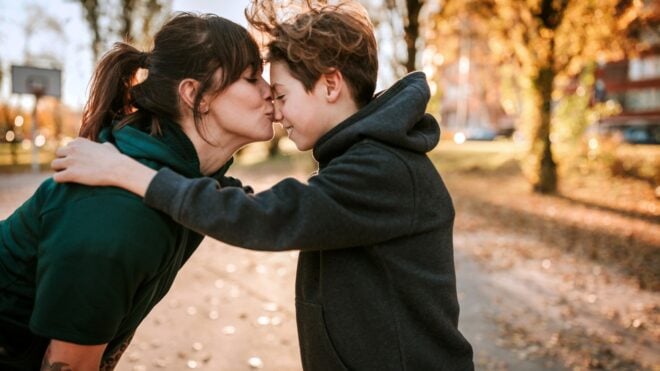
When I first met my husband in a bar on the outskirts of Atlanta, I wasn’t necessarily looking for a partner, but I had a list of standards that the ideal candidate was required to meet. Along with being a kind-hearted person, any possible mate would have to be a critical thinker, an honest human being, and have a strong respect for women. I’d learned from past relationships that these traits mattered most to me, but there was another preference I had unknowingly placed on the list — I wanted my permanent partner to be Black.
Desiring the companionship of a Black man had little to do with physical appearance and everything to do with the underlying aspects of Black love. That’s not to say that every relationship between two Black people is magical, or that African Americans should only date someone of the same race. As a general rule, I try to avoid statements that include “all” and “every,” understanding that each individual within any situation is unique. Black love simply describes the potential romantic bond between African Americans who share a culture and history, as my husband and I do.
After meeting, getting married, and establishing a life together in Atlanta, my husband and I decided that we wanted to travel frequently. We thought back to the ways our ancestors were literally and figuratively chained into place, about how the generations preceding ours restricted free movement of our families’ Black bodies, from slavery to Jim Crow to mass incarceration. We wanted to claim the rights they had worked, fought, and died for, so we resolved to carry their legacies around the world.
At first, we visited several Caribbean islands. Places like Jamaica, the Bahamas, and St. Thomas were easy enough to access from our southeastern position in the US, and in these places we were comforted by large populations of Black communities that descended from enslaved Africans as well. We understood the celebration of color that our worlds shared through the vibrant fashions, flavorful foods, and exaggerated dialects flaunted in the tropical islands. We could also relate to the resilience found in our Caribbean comrades, all of us born into an existence that seemed to unevenly distribute struggle.
On a daily basis, we were able to chip away at the concrete conditioning of what we were supposed to do and be as African Americans, and allowed each other to just — be.
It wasn’t until we became fully nomadic, selling most of our possessions and backpacking through Europe, that we realized the true value of the Black community we had just left in America. While traveling through 13 countries in Europe and the UK, we were surprised to be called American before being identified by the color of our skin. Even when we met Black Europeans, they identified us as Americans first. Though some of them also shared their experiences with racism within their own countries, we felt more and more isolated as we came to understand the differences in their history and ours. Years later, we spent time living and traveling throughout Asia, feeling curious eyes asking unspoken questions about our identity as we walked the streets. But no matter where we went, our tiny community of two Black Americans in love kept us at home.
The longer my husband and I were together, the more we discovered ourselves through each other. Within conversations that would be impossible to have with partners from other cultures, we processed generational trauma together. We were both encouraged by the other to claim the freedom promised to our parents, grandparents, and forebearers. We spent time remembering the unnamed slaves who died on our behalf. We examined the different dynamics of “Blackness” and how we embodied multiple archetypes. We considered politics and how our personal happiness most depended on local policies. On a daily basis, we were able to chip away at the concrete conditioning of what we were supposed to do and be as African Americans, and allowed each other to just — be. In our love, we found personal freedom that neither of us expected to come across in this lifetime.
I’m aware that our story is unique on its own, but our experience as bonded Black Americans is not. Our Black love created a union of African Americans, making us stronger together than we were separately. We understand the emotional load of being Black in America, as well as how to encourage each other through trying times while appreciating and celebrating the beauty in our existence. The value of our Black lives should be apparent to all, but we are most securely confirmed in the appreciative embrace of the other. Without having to censor each other or misunderstand language, we are free in our own home because of the affection and history we share and understand. That’s what’s so special about Black love.




